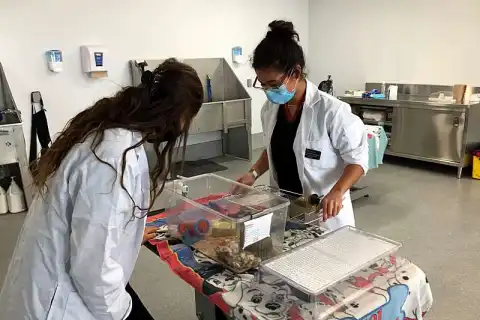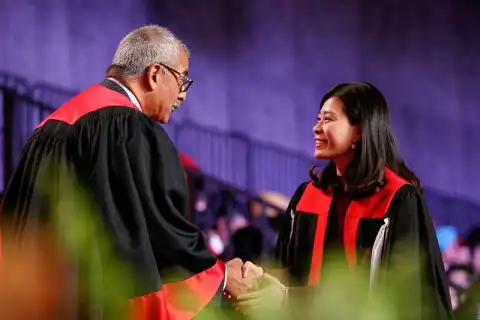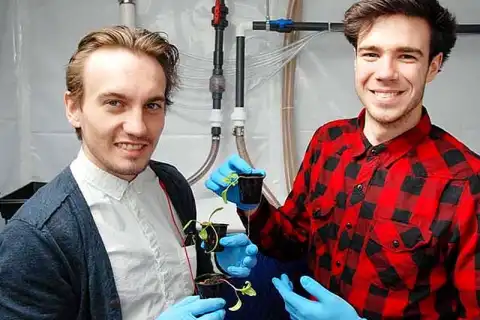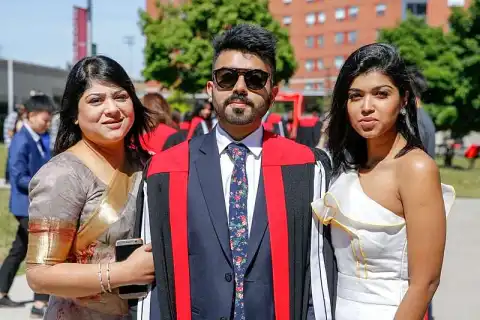Certificate - Non-Profit & Social Sector Management
- 1 year
- Duration
- 18,146 CAD
- Price
- Rolling admission
- Start
- Rolling admission
- Deadline
- Certificate
- Degree
- Mixed
- Format
- Toronto / Canada
- Location
Program description
The goal of this eight-month graduate certificate program is to teach you everything you need to know about managing and leading a nonprofit to long-term success.
You will gain knowledge in the areas of marketing and sales as well as program planning, development, and evaluation, as well as ethical and transparent company governance.
Fundraising, forming alliances, and volunteerism are all areas you'll learn more about.
Program structure
Semester 1
- Fundamentals of Project Management
- Introduction to the Non-Profit Sector
- Leadership Approaches in the Non-Profit Sector
- Resource Development Strategies
- Computer Applications and Information Systems
- Financial Management for Non-Profit Organizations
Semester 2
- Strategic Planning for Non-Profit and Social Enterprises
- Human Resources Management in the Social Economy
- Building Alliances and Partnerships in the Social Sector
- Marketing Management for Non-Profit and Social Enterprises
- Program Development, Management and Evaluation
- Integrated Project
- Work Term Preparation (Work-Integrated Learning option only)
Work-Integrated Learning Term
- Non-Profit and Social Sector Management, Work Term
Price
Tuition fees - 18,146 CAD
Books and Supply Costs 0 CAD
Please note: All costs are approximate, may vary by campus and are subject to change at any time without notice.
Requirements for applicants
Academic Requirements:
- High school transcripts for grades 10, 11 and 12 showing all program specific pre-requisite courses.
- High school/secondary school diploma (certificate of completion).
- You may submit transcripts or certificates for any completed university/postsecondary college courses or programs taken inside or outside of Canada.
- Academic records that are in a language other than English must include an official/certified English translation.
Seneca reserves the right to verify submitted transcripts at any time. For courses and credentials earned inside of Canada, Seneca reserves the right to request original transcripts be sent directly to Seneca from the issuing institution. Applicants will be notified if this is needed.
English Proficiency Requirements:
If English is not your first language, show one of the following:
- Minimum of two years full-time study in an English-speaking nation
- Minimum one year of full-time postsecondary education in an English-speaking nation
- Successful completion of an intense English program like the English Language Institute
- English proficiency exam results from one of the international testing agencies. Only two-year-old tests are valid.
English language test score requirements
- CAEL CE and CAEL online - Minimum 60
- Cambridge English Exams (B2 First/FCE, C1 Advanced/CAE or C2 Proficiency/CPE) - Minimum 169 with no skill below 162
- Duolingo - Minimum score 105 to 110
- IELTS Academic - Minimum 6.0 with no skill below 5.5
- PTE Academic - Minimum score 58
- TOEFL iBT (including MyBest TOEFL and Home Edition) - Minimum 80 with no skill below 20
- TOEFL Revised Paper Delivered - No skill below 20
About the university

A public institution with many campuses in Peterborough, Ontario, and the Greater Toronto Area is called Seneca College of Applied Arts and Technology. At the bachelor, diploma, certificate, and graduate levels, it provides both full-time and part-time programs.
Seneca has been involved in foreign education for many years and today draws over 10,000 students from over 130 different nations each year. Through intense language instruction that may last anywhere from two months to more than a year, Seneca's English Language Institute helps overseas students become ready for post-secondary education. The college has a number of alliances with schools abroad and is growing its efforts in collaborative applied research and work/study abroad opportunities.
Seneca in a Nutshell
- With 30,000 full-time students and more than 70,000 registrations for continuing education each year, this institution is among the biggest in Canada.
- 7,000 foreign students from more than 150 nations make up a diversified student body.
- In terms of connections to other postsecondary institutions, Ontario colleges rank first.
- In Toronto, York Region, and Peterborough, there are ten campuses.
- Every year, on average, 8,000 bursaries and 2,600 Seneca scholarships/awards are given out.





